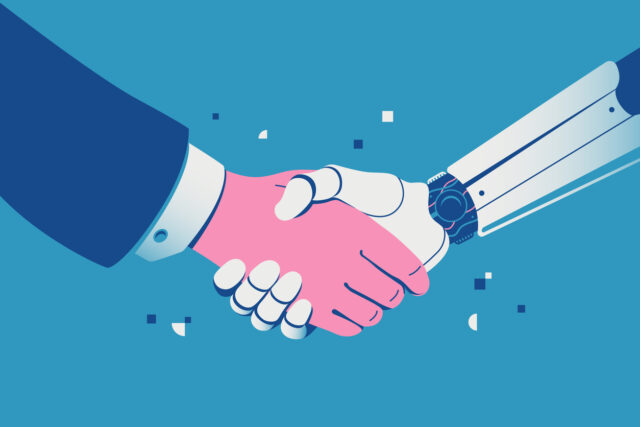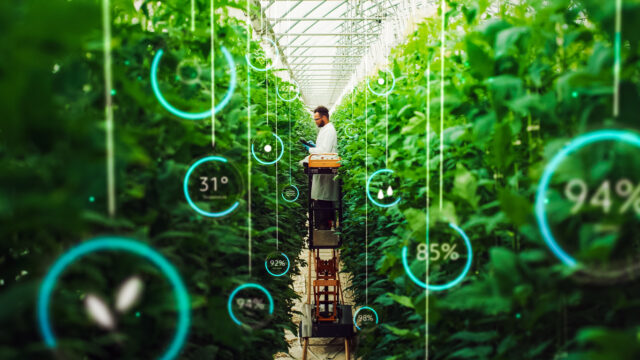“It might sound harsh, but people just won’t have a job if they don’t change.”
For Daniel Barnes, Community Manager at Gatekeeper, his thoughts are clear. Technology is here and it’ll only get more advanced.
Barnes has been the Community Manager at Gatekeeper since June 2022. The company he works for is a next-generation Vendor & Contract Lifecycle Management (VCLM) platform that was born in the cloud and works on any device. Gatekeeper has a strong focus on collaboration, clear actionable data, obligation and compliance tracking, email alerts and most of all ease of use. The firm has a ‘zero training’ mantra driving a fanatical focus on usability that results in an application internal stakeholders and suppliers can use effortlessly.
The Gatekeeper Platform provides a suite of vendor management, contract management, kanban workflow, collaboration and reporting features. Customers can extend the functionality of Gatekeeper with additional modules to meet their required use cases, as well as integrating with over 220 third-party solutions.
Technology potential
Since joining the company, a key consideration for both Barnes and Gatekeeper has been the influence of generative AI. However, Barnes explains that while the potential of the technology is exciting, they are being strategic about how to leverage AI.
“We’re probably taking it a little bit more of a slower approach,” he tells us. “We have a contract summary function at the moment which means for any contract we summarise it so that anyone in the business can get a really quick understanding of that contract. We’re also exploring whether we’re going to bring in a Gatekeeper bot that allows us to get insights analysis in a very conversational manner. One thing we really believe is that contract and vendors aren’t just for procurement or legal. Everyone in the business has to contribute to make these successful. A lot of the issues, data and information behind these are legally complex. Procurement language is difficult when you’re talking about RFPs or you’re talking about risk. Someone in the business doesn’t care about that, they just want to get whatever they have brought, they want the service, they want it performed, they want it on time and they want a good relationship. We’re trying to figure out how to use AI like that.”

The rise of Gen AI
Generative AI isn’t exactly new. In fact, it actually dates back to the 1960s. Among the first functioning examples was the ELIZA chatbot which was created in 1961 by British scientist Joseph Weizenbaum. It was the first talking computer program that could communicate with a human through natural language. But, given the introduction of a far more advanced model – ChatGPT – gen AI is the name on not only procurement’s lips but the wider world too. Barnes questions what you need to make AI successful at implementation.
“You get data and most procurement and legal teams have an issue with data because they don’t have it in one place,” he explains. “We fundamentally believe in this three-pillar approach. It’s to restore visibility and to have all your vendors and their contracts in one place. From there, you take control of that by digitalising all of your processes. Once they’re digital, you can track and automate them from various data points that you have in your vendor and contract records. That allows you to safeguard compliance, whether that’s regulatory, legislative or by contractual obligations. They’re all different forms of compliance that you need to track. Most teams are really struggling just with those. When we talk about gen AI, the reality is most teams are still so far away from even being able to realise those benefits. Today, gen AI looks powerful once you have the pillars in place and I’m really excited about its future.”
Procurement’s evolution
Indeed, procurement stands at a unique moment. With some in the space used to operating a certain way through legacy systems and others embracing a digital transformation and the technological innovation that brings with it, Barnes recognises that people who are reluctant to change could be left behind. “I think there has to be a willingness to change,” he tells us. “I’ve been talking about change in procurement since 2019, and I would say 80% of people who are engaged are hesitant and don’t want to change. That’s a really big concern. But my biggest worry is they don’t want to know in the first place. One of my fears is you’ve got so many solutions that genuinely can eliminate work in procurement teams. I’m worried for those people who don’t want to change because what are they doing when their work’s automated?”
The future
Barnes, who also hosts the World of Procurement podcast and YouTube channel, believes there is a current cultural divide in procurement and the industry is at a make-or-break moment. He affirms procurement will go “one of two ways”.
“You’ve got people who are stuck in the past that are archaic with what they’re doing. Then there’s those who are really pushing the profession forward,” he explains. “I see it as a moment in time where procurement kind of goes one in two ways. It’s extinct in terms of how it used to be. There’s solutions that I’ve seen which have automated workflows and are doing the work that traditional procurement people used to do. We can pull people along, but there has to be an initial willingness to change too or it’s not going to happen. That’s why I think it’s great to see people that are showing that willingness. They may not have the answers, but they want to learn.”











